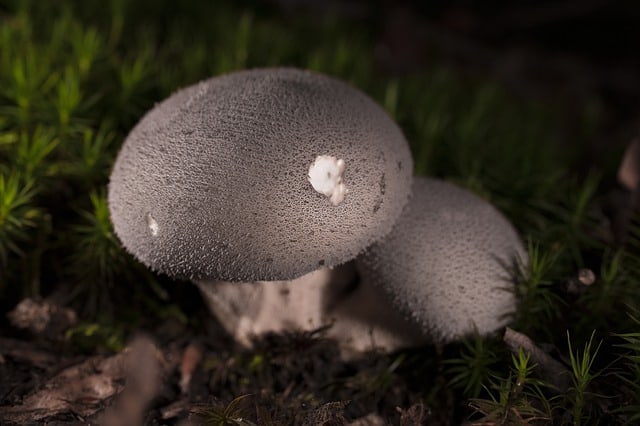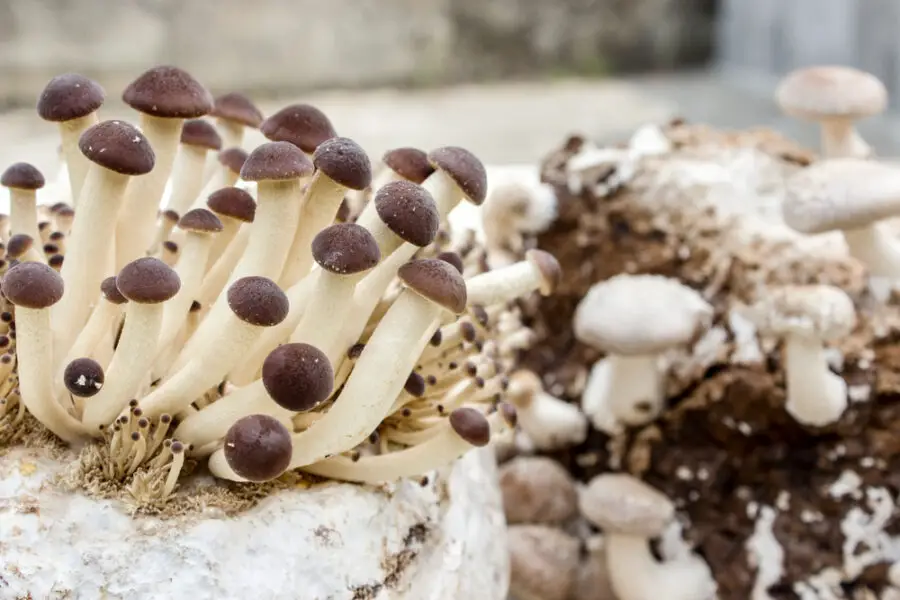Lion’s Mane mushrooms have scientifically-proven benefits that may ease or reduce the symptoms of sleep disorders related to depression, anxiety, or stress. If your natural sleep patterns have been disrupted, there are many forms of Lion’s Mane to help ease common restlessness.
This short article will explain how Lion’s mane mushrooms work and the compounds they contain that promote a better night’s rest. Details are also shared on how to take them, where to find them and who will benefit most from one of nature’s most fascinating medicinal mushrooms.
How does Lion’s Mane help with sleep?
Lion’s Mane mushroom contains two powerful compounds, Hericenones and Erinacines, which are considered natural bioregulators. When activated, these elements promote Nerve Growth Factors (NGFs) that affect our sleep cycles, making Lion’s Mane a trusted adaptogen for sleep improvement.
What are Hericenones and Erinacines?
Hericenones can be found in the fruiting body of Lion’s Mane, while Erinacines can be found in the mycelium (aka the root system) of the mushroom. These powerful compounds have a low molecular weight, allowing them to cross the blood–brain barrier with ease. This easy interaction is good for brain function.
What is an adaptogen?
Lion’s Mane is considered an adaptogen, which helps your parasympathetic nervous system return to a normal state of calm. By engaging your body’s natural stress protection, adaptogens assist with regulating overproduction of stress hormones and cortisol.
What is Nerve Growth Factor (NGF) and how does it aid sleep cycles?
According to the Journal of Translational Medicine, NGFs were the first-discovered proteins in our bodies that help kick-start neuron generation. In other words, an NGF builds new connections in our brains. The ones produced by Lion’s Mane, specifically, create unique and improved pathways for our circadian rhythms to function optimally.
What is a circadian rhythm?
Circadian rhythms are the body’s natural cycles. These rhythms help define our biological schedules – in other words, our physical, mental and emotional patterns, including waking and sleeping. Our circadian rhythms are affected by light, nutrition, and stress levels.
What is REM sleep and why is it important?
An integral cycle in our circadian rhythm is REM sleep, the stage of sleep where learning and memory-making areas of your brain are stimulated. Lion’s Mane mushroom will promote healthy paths for this area of the brain, promoting a more restful and beneficial sleep.
How does Lion’s Mane make you feel?
Due to Lion’s Mane proven anti-inflammatory properties in the brain, this mushroom will help ease anxiety. You can expect a more balanced feeling over time with regular, consistent use.
How do you take Lion’s Mane mushroom supplements?
Lion’s Mane mushroom is available in many forms. You can take it as a powder, tea, capsule, or liquid extract. Depending on your needs and preferences, virtually any form is available these days with the demand for this mushroom growing among consumers.
When should you take Lion’s Mane mushroom supplements?
Some people believe taking Lion’s Mane at night is most beneficial, while others say that morning time provides the most efficacy. In the end, the specific time of day doesn’t matter as much as how long you take the mushrooms over a period of time.
How long should you take Lion’s Mane?
Medicinal mushrooms take a while to build up in your system and are considered long-term treatments. It is recommended to take Lion’s Mane mushrooms for at least 2 weeks, and up to 3 months, in order to see optimal benefits.
How much Lion’s Mane should you take for sleep problems?
Recommended dosage is going to depend on the strength of the supplement you choose. For general guidelines, a daily dose of 500 – 1,000 mg one to three times a day has shown to be safe, as well as effective.
Where can you find Lion’s Mane supplements?
There are so many channels available for purchasing Lion’s Mane. Consumers should be careful though and learn more about the producer while seeking out 100% fruiting body or 100% mycelium extracts or powders. These can generally be found at your local health food store or online, from trusted retailers.
Where does Lion’s Mane naturally grow?
All naturally-occuring Lion’s Mane mushrooms come from North America and Canada. In late summer and throughout fall, they love growing on dead logs or wounds of hardwood trees. These days, Lion’s Mane is also grown in laboratories and on mushroom farms for medicinal purposes.
Can you cook and eat naturally-grown Lion’s Mane for sleep benefits?
If you find fresh Lion’s Mane mushroom in nature or at the farmer’s market, cooking and preparing it at home is really easy. Lion’s Mane flavor is compared to crab or lobster. When cooking, make it as uncomplicated as possible. Sauteing or deep frying will be sufficient to bring out the natural and meaty flavor of this fluffy mushroom.
Are there any side effects associated with Lion’s Mane supplements?
There isn’t a lot of data for side effects caused by taking Lion’s Mane mushrooms, unless you are allergic to mushrooms. Although the majority of scientific research on Lion’s Mane is based on animals, it appears safe to ingest Lion’s Mane mushroom in moderate quantities (up to three grams/day).
Who should take Lion’s Mane?
Anyone can benefit from taking Lion’s Mane mushrooms and they are proven safe for most everyone. Someone who struggles to obtain regular rest due to stress, poor physical health or anxiety will benefit the most from taking Lion’s Mane. To ensure the safest dosage and method, consulting with your doctor before taking any mushroom is advised.
Can using Lion’s Mane for sleep become addictive?
Because Lion’s Mane has relaxing properties, some people worry that it may be addictive. But, unlike traditional antidepressants, there is actually no risk of addiction, withdrawal or other negative effects that may be associated with coming off of regular SSRI or antidepressant.
Hi, I’m John Stephens, chief editor and writer for Totalgardener.com. I’ve been gardening and raising animals for over 15 years starting with a small backyard plot in Northern Virginia where I grew corn, potatoes, squash, and using a high mulch technique called the Ruth Stout Method. I also raised ducks and small mammals for meat and eggs in a movable pen similar to the ones used by Joel Salatin. I later moved to Colorado where I experimented with growing greens using aquaponics inside. I eventually added a microgreens setup and home sprouting operation. I’m excited to share everything I’ve learned plus more from the other local gardening and animal raising experts I know.



